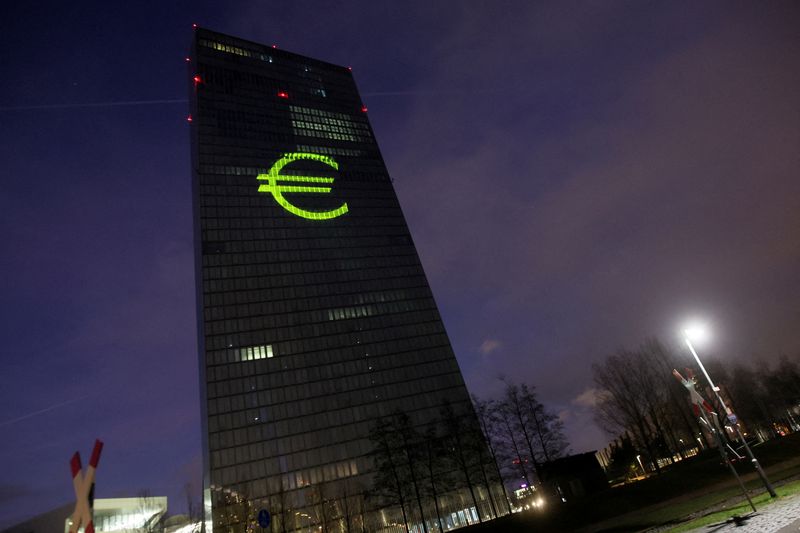By Geoffrey Smith
Investing.com -- Eurozone bond yields hit multiyear highs again on Wednesday, amid increasing speculation that the European Central Bank will be forced to speed up its plans to tighten monetary policy.
The Frankfurt-based central bank has already indicated it will stop its net asset purchases at the end of this month, paving the way for a first interest rate hike in 11 years at its meeting in late July. Guidance from ECB President Christine Lagarde and chief economist Philip Lane has suggested that a first hike of 25 basis points will be followed by another similar increase in September, ending a nine-year long period in which the bank's key rate has been below zero.
However, for many at the central bank, that timetable is too timid, given that inflation hit a new record high of 8.1% in May, overshooting market expectations by some distance. The ECB's reticence to move more quickly has stood in increasingly sharp contrast to the actions of other central banks around the world which have chosen to accelerate their tightening of monetary policy. India became the latest central bank to raise its key rate by 50 basis points on Wednesday, following a trend set by the U.S. Federal Reserve, and the central banks of Australia and New Zealand in recent weeks. Dutch central bank Governor Klaas Knot and his Slovakian counterpart Peter Kazimir have both indicated an openness to a 50 basis point hike already in July in recent days.
Hawks at the ECB will have been emboldened by the revision to first-quarter economic growth figures for the Eurozone earlier Wednesday. Eurostat raised its estimate for gross domestic product growth up to 0.6% from an initial estimate of 0.3%, leaving GDP 5.4% higher than it was in March 2021. The numbers suggest that the economy may have more momentum than feared, despite weakening in response to the eruption of war between Russia and Ukraine.
By 10 AM ET (1400 GMT), the German 2-year note was yielding 0.70%, up five basis points on the day and its highest level since 2011. The 10-year Bund was up 7 basis points at 1.35%.
Among the bonds issued by the Eurozone's weaker credits, the 10-year Italian bond yield rose 10 basis points to 3.49%, while its Spanish counterpart rose 8 basis points to 2.49%.
Lagarde has said that the ECB will ensure that it keeps spreads between the respective national credits within acceptable limits as it tightens policy. However, it has usually achieved that goal by buying bonds in the market, a policy which goes against the current trend of trying to stop the injection of liquidity into the financial system.
